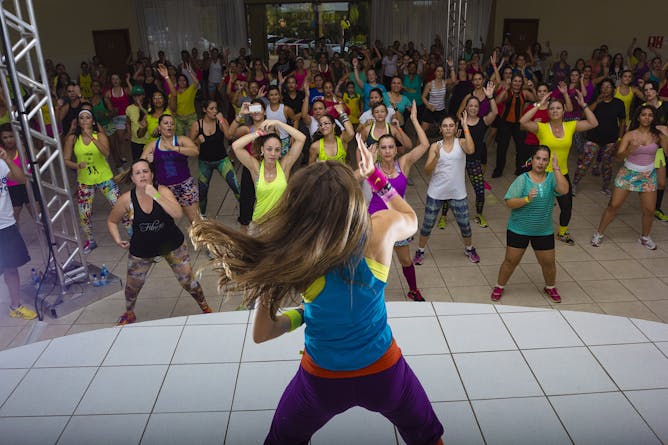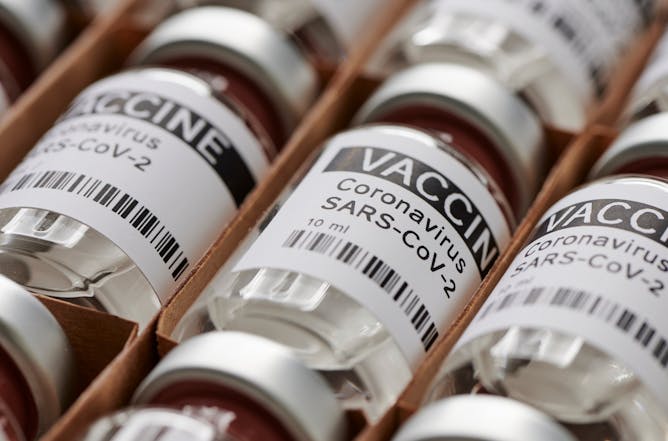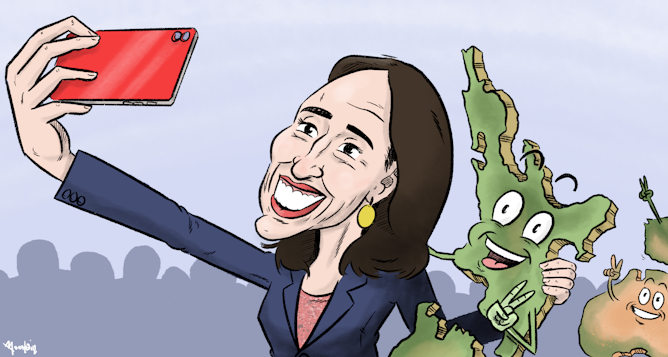|
|
|
|
Superspreading events, where one person passes COVID-19 to a large group of people, received a lot of attention in the early days of the pandemic. Now with social distancing restrictions in place, we’ve largely shifted our focus to more small-scale spread of the virus. But growing evidence suggests that one-to-many clusters of transmission play a particularly important role in how the disease propagates.
This is particularly bad news for anyone hoping COVID-19 will go away if only we can get case numbers low enough while wearing masks and washing our hands. The power of superspreading events means it only takes a few infected people in the wrong place at the wrong time to create new clusters of disease that rapidly bring numbers up again. Without an adequate test and trace system, COVID-19 is likely to keep coming back again and again, effectively becoming endemic.
The only surefire way to end the pandemic is with a vaccine. Here you can read our comprehensive guide to everything we know so far about how a vaccine will work, the progress that’s been made, and the challenges that still lie ahead. In the meantime, much of the north of England is being subjected to increasingly severe local lockdowns that are leading politicians from across the region to come together in
opposition to the government’s plans.
And in New Zealand, Prime Minister Jacinda Ardern’s response to the pandemic has won her plaudits, but has also seen her leadership transformed.
|
Stephen Harris
Commissioning + Science Editor
|

|
|

Dance classes have been implicated as potential superspreading events.
dorglao/Shutterstock
Morten Sodemann, University of Southern Denmark
COVID-19 appears to spread in clusters, and that could keep it coming back even if case numbers are brought down.
|

Peter Byrne/PA
Laurie Parsons, Royal Holloway
We are not all in this together.
|

M-Foto/Shutterstock
Rob Reddick, The Conversation
Experts from across The Conversation look at how COVID-19 vaccines will work, how they're being tested and manufactured, and what challenges there will be to rolling them out.
|

Wes Mountain/The Conversation
Richard Shaw, Massey University
The politics of reassurance have made her one of the most popular prime ministers in NZ history. Can Jacinda Ardern turn that into meaningful change?
|
Politics + Society
|
-
Ryan Swift, University of Leeds
Even Conservative backbenchers are forming alliances to push back against central government thinking on COVID measures.
-
Leonora Risse, RMIT University
Confidence matters for men's job promotion prospects.
But for women, it's a different story.
-
Petra Molnar, York University, Canada; Kenya-Jade Pinto, York University, Canada
In the middle of a windswept refugee camp in the aftermath of the burning of Moria, the COVID-19 pandemic is an afterthought.
-
Paul Onanuga, Federal University, Oye Ekiti
Despite same-sex relations being criminal, social media is a space to come out and speak back to homophobia for the Nigerian tweeters in the study.
-
Yan Wu, Swansea University; Matt Wall, Swansea University
WeChat is a key way for the Chinese diaspora to maintain social ties, or guanxi.
|
|
Health + Medicine
|
-
Kevin McConway, The Open University
It's hard to make international comparisons of the COVID death rates in individual countries, but a new approach is giving scientists better data to work with.
-
Ian Hamilton, University of York; Niamh Eastwood, Middlesex University
The Office for National Statistics reports the highest drug deaths since records began in 1993.
-
Jamie Hartmann-Boyce, University of Oxford; Nicola Lindson, University of Oxford
Yet regulators remain torn.
-
Richard Kirwan, Liverpool John Moores University; Claire Stewart, Liverpool John Moores University
Without proper care, lockdown measures during the COVID-19 pandemic could worsen muscle loss and long-term health in ageing populations.
|
|
Business + Economy
|
-
Jennifer Jordan, International Institute for Management Development (IMD); Tim Vriend, University of Groningen
Liking your boss and your company can lead to bad behaviour.
-
Jamie Stewart, University of Strathclyde ; Karen Turner, University of Strathclyde
Will Boris Johnson's 'offshore wind revolution' really unlock significant economic value?
-
Jenny K Rodriguez, University of Manchester; Elisabeth Anna Guenther, Vienna University of Economics and Business
Homogenous, male-only panels remain prevalent, despite growing numbers of women experts in multiple fields.
|
|
Science + Technology
|
-
Hannah Critchlow, University of Cambridge
Scientists are revealing the extent to which our behaviour is influenced by our genes, calling into question our capacity for free will. But there is still scope for change.
-
John Bryson, University of Birmingham
A government ad was slated for encouraging dancers to go into cyber security, but it actually contained a very good idea.
|
|
Arts + Culture
|
-
Katy Shaw, Northumbria University, Newcastle
A new wave of productions are proving that there is power and possibility in the menopause
|
|
| |
Featured events
|

|
Online, Leeds, Leeds, LS2 9HD, United Kingdom of Great Britain and Northern Ireland — University of Leeds
|

|
Swansea University , Singleton Park, Swansea, Swansea [Abertawe GB-ATA], SA3 3DX, United Kingdom of Great Britain and Northern Ireland — Swansea University
|

|
Sustainable Places Research Institute, Cardiff University, Cardiff, Cardiff [Caerdydd GB-CRD], CF10 3BA, United Kingdom of Great Britain and Northern Ireland — Cardiff University
|

|
Aston University, Aston Triangle, Birmingham, Birmingham, B4 7ET, United Kingdom of Great Britain and Northern Ireland — Aston University
|
|
|
|
| |
| |
| |
| |
| |
|
|
|
|
|
|
|